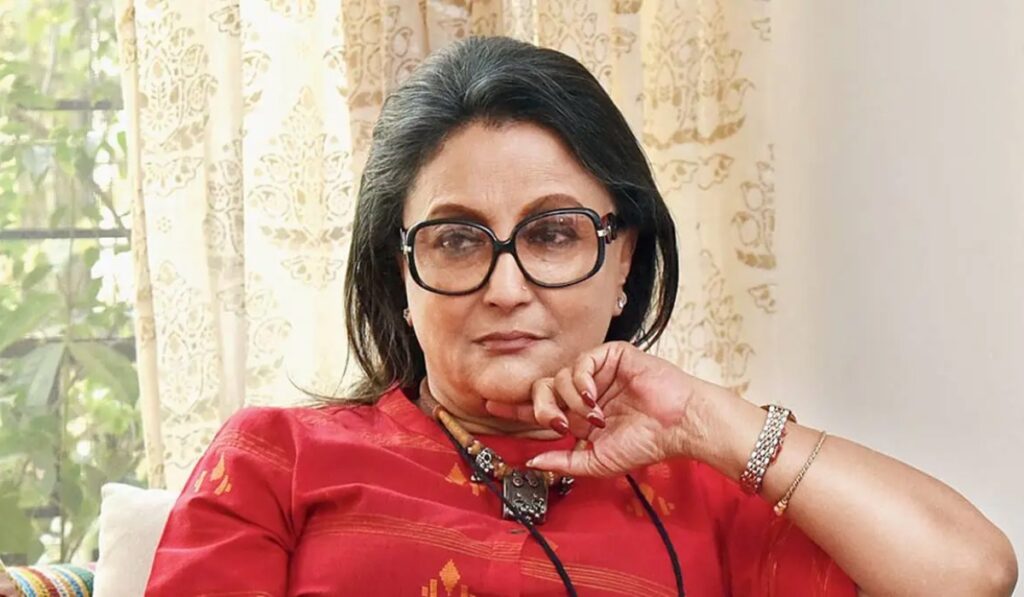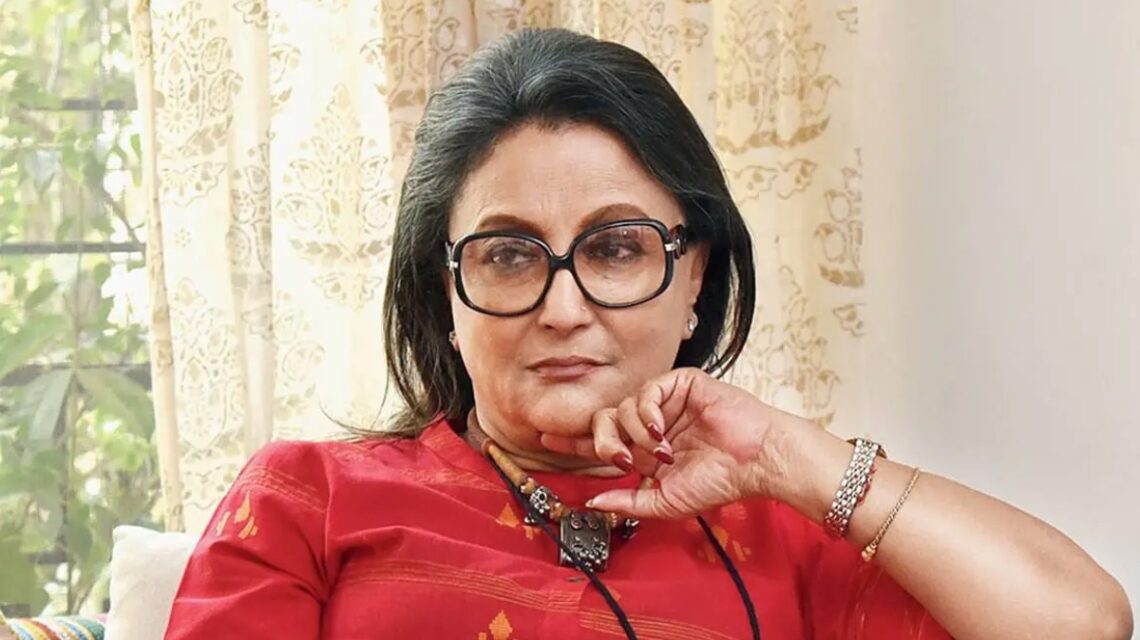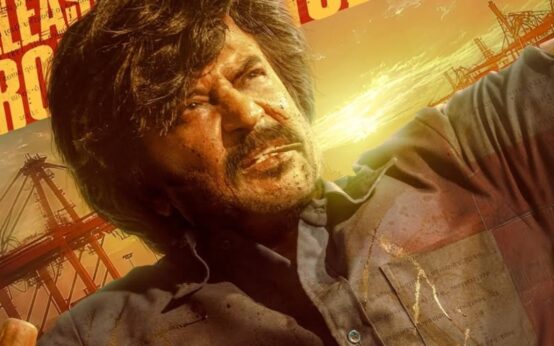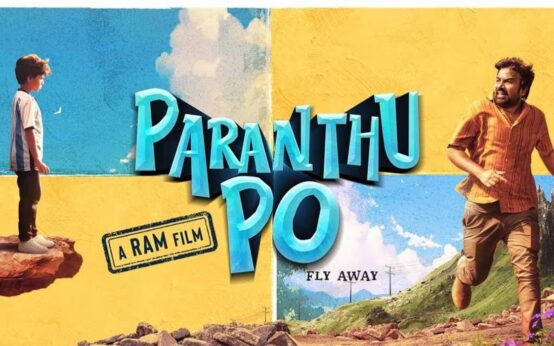In Aparna Sen: A Life in Cinema, author Devapriya Sanyal explores the filmmaker’s cinematic universe, focusing on how her women protagonists evolved over time. One of the most striking examples is Mr. and Mrs. Iyer Aparna Sen, a 2002 film that captured the human cost of communal violence while offering a restrained, humane response to the Godhra carnage.

Table of Contents
Released in the immediate aftermath of the Gujarat riots, Mr. and Mrs. Iyer Aparna Sen stood apart for its compassion and restraint. Instead of loud drama or political sloganeering, Sen crafted a delicate story of two strangers—a conservative Tamil Brahmin woman and a liberal Muslim man—who are forced to travel together and confront their prejudices in the shadow of sectarian violence.
A Journey Through Fear and Intimacy
The film opens in a quiet South Indian household, where Meenakshi Iyer (played by Konkona Sen Sharma) prepares to return to Calcutta with her infant son. Her father entrusts Raja Chowdhury (Rahul Bose), a wildlife photographer, to accompany and protect her during the journey.
The bus they board soon becomes a microcosm of India itself—passengers from different regions, faiths, and classes, all thrown together. When news of riots breaks out after a Muslim man’s killing, curfews and violence disrupt their journey.
In one chilling moment, an elderly Muslim couple on the bus is betrayed and murdered by rioters. It is here that Meenakshi, despite her conservative, caste-bound upbringing, instinctively protects Raja by pretending he is her husband. In doing so, she not only saves his life but also begins a personal transformation—gradually shedding her prejudices, sharing water from his bottle, and finding comfort in his presence.
Love Amidst Violence
Though marketed as a love story set against communal riots, Mr. and Mrs. Iyer Aparna Sen is not a conventional romance. Sen deliberately avoids melodrama. Violence remains in the background—reported through whispers, radio bulletins, and fleeting moments—while the focus stays on the quiet intimacy between Meenakshi and Raja.
In just two days of forced proximity—bus rides, waiting at checkpoints, and nights spent in a wayside forest bungalow—they discover each other’s humanity. Their play-acting as husband and wife, their conversations about caste, forests, and freedom, and Meenakshi’s slow unlearning of inherited prejudices all form the core of the film.
As Sen herself explained:
“I wanted to make a love story and I always wanted to make a film about a journey. An external journey is a metaphor for an internal one—it opens you up to new experiences, to things about yourself and others that you had not expected.”
The Larger Context
Indian cinema has often grappled with communal violence—from the Partition (Ritwik Ghatak, Deepa Mehta) to the Bombay riots (Bombay by Mani Ratnam), and later the Gujarat pogrom (Parzania, Firaaq). But Iyer Aparna Sen offered something different.
Where Bollywood often sensationalizes bloodshed, Sen’s narrative was understated, lyrical, and deeply humane. She refused neat closures or didactic messages. Instead, she left viewers with questions: What happens when individuals are forced to confront violence bigger than themselves? What prejudices collapse when survival demands solidarity?
Women, Agency, and Ethics
As with many of Aparna Sen’s films, the “Woman Question” is central. Meenakshi begins as a sheltered, caste-conscious Brahmin woman but discovers courage and moral clarity when violence erupts. In contrast, the men—including Raja—are rendered passive when the elderly Muslim couple is dragged away. It is women, Meenakshi and a young girl on the bus, who display moral courage.
This inversion highlights Sen’s recurring theme: women as agents of change in a world fractured by patriarchy and communalism.
Why Mr. and Mrs. Iyer Aparna Sen Still Matters
At its heart, Mr. and Mrs. Iyer Aparna Sen is not just about communal riots—it is about two individuals choosing humanity over prejudice. A Tamil Brahmin woman calling a Muslim man her husband in order to save his life becomes a powerful allegory for secular India.
By refusing melodrama, Sen gave us a film that was both intimate and universal. In today’s fractured times, her message remains urgent: in a world divided by sectarian politics, empathy and love may be the only way forward.
Example FAQ Section
Q1. What is Mr. and Mrs. Iyer Aparna Sen about?
It is a 2002 film by Aparna Sen that tells the story of a Tamil Brahmin woman and a Muslim man who confront prejudice and communal violence during a bus journey.
Q2. Why is Mr. and Mrs. Iyer Aparna Sen considered significant?
Because it offers a humane, restrained response to communal violence, showing love and compassion instead of hatred and prejudice.
Q3. Who played the lead roles in Mr. and Mrs. Iyer Aparna Sen?
Konkona Sen Sharma played Meenakshi Iyer, and Rahul Bose played Raja Chowdhury.
Q4. How did Aparna Sen respond to communal riots through the film?
She showed that empathy and human connection, as seen in Mr. and Mrs. Iyer Aparna Sen, are stronger than divisions created by religion and caste.
It is a 2002 film by Aparna Sen that tells the story of a Tamil Brahmin woman and a Muslim man who confront prejudice and communal violence during a bus journey.
Because it offers a humane, restrained response to communal violence, showing love and compassion instead of hatred and prejudice.
Konkona Sen Sharma played Meenakshi Iyer, and Rahul Bose played Raja Chowdhury.
She showed that empathy and human connection, as seen in Mr. and Mrs. Iyer Aparna Sen, are stronger than divisions created by religion and caste.
Conclusion
Cinema is more than just entertainment—it reflects society, questions norms, and inspires change. From timeless classics to the latest blockbusters, movies open up worlds of imagination, emotion, and thought. At Hello Filmy, we bring you in-depth reviews, analyses, and updates to keep you connected with everything happening in the world of films. Explore more reviews, behind-the-scenes stories, and the latest updates in cinema only on Hello Filmy Movies. Stay tuned, stay filmy!



 Santhy Balachandran Lokah: Oxford Graduate & Gulmohar Actor Behind Kalyani Priyadarshan’s Superhero Film
Santhy Balachandran Lokah: Oxford Graduate & Gulmohar Actor Behind Kalyani Priyadarshan’s Superhero Film  Coolie Movie Review: Rajinikanth’s Power-Packed Comeback With Lokesh Kanagaraj — Nostalgia, Mass Moments & Mixed Impact
Coolie Movie Review: Rajinikanth’s Power-Packed Comeback With Lokesh Kanagaraj — Nostalgia, Mass Moments & Mixed Impact  Paranthu Po OTT Release: Celebrated in Theatres, Now Streaming Online!
Paranthu Po OTT Release: Celebrated in Theatres, Now Streaming Online!  The Running Man: Glen Powell Leads Explosive and Gritty Remake from Edgar Wright
The Running Man: Glen Powell Leads Explosive and Gritty Remake from Edgar Wright  Yo Yo Honey Singh Confirms Rights to ‘Laal Pari’; Sajid Nadiadwala Takes Legal Action Over Housefull 5 Teaser Takedown
Yo Yo Honey Singh Confirms Rights to ‘Laal Pari’; Sajid Nadiadwala Takes Legal Action Over Housefull 5 Teaser Takedown  Dhadkan: Akshay Kumar, Shilpa Shetty, Suniel Shetty’s Film Re-releases on This Date After 25 Years
Dhadkan: Akshay Kumar, Shilpa Shetty, Suniel Shetty’s Film Re-releases on This Date After 25 Years